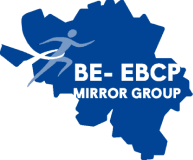Project
SUCCESSion
Probing the malignant potential of mutant clones in healthy mammary tissue by successive mutagenesis
1 December 2024 - 30 November 2029
SUCCESSion aims to develop a novel sequential somatic gene editing technology to study how the order of mutations influences mutant cell transformation and microenvironmental rewiring in the mammary gland. The project seeks to advance understanding of tumor initiation, improve risk prediction, and enable early interventions to prevent cancer.
Project description
Mutant cells are abundant in normal tissues, but only very few will transform into life-threatening cancer. The triggers for these mutant clones to transform are unclear. Phylogenetic studies of solid cancers hinted towards an impact of the order of mutation acquisition on the malignant potential of mutant clones. However, to date, no functional studies exist validating these findings in the in vivo context. Mutant clones closely interact with their environment. Intravital microscopy experiments from my lab showed that phenotypically normal, but mutant clones in the mammary epithelium, the tissue of origin of breast cancer, dynamically rewire their environment in a mutation-specific manner. Hence, I hypothesize that the transforming potential of a mutant clone does not lie in the combination of mutations, but rather in the order in which these mutations were acquired, and thus the way in which the environment of the mutant clone was sequentially rewired, leading to a permissive or a resistant environment for tumour initiation. Tools to study sequential acquisition of mutations in vivo do not exist. Therefore, the possibility that one mutation may need to precede the other for a mutant clone to transform, has not been studied. SUCCESSion will fill this gap and develop a novel sequential somatic gene editing technology. This will be combined with intravital imaging and transcriptional profiling to study for the first time the effects of different sequences of mutations on cell behaviour and sequential rewiring of the micro-environment in the mammary gland. SUCCESSion will have a ground breaking impact from a technical point of view as it will establish a novel way of modelling pre-cancer in vivo, and from a biological point of view as it will elucidate the temporal evolution of pre-cancer in unprecedented detail. This will lead to better understanding of tumour initiation and improve risk prediction enabling early interventions to stop the cancer before it starts.
Funding programme & Type of action
Funding programme : Horizon Europe
Type of action : Grants
Grant agreement number : 101164107
Duration
years : 4
